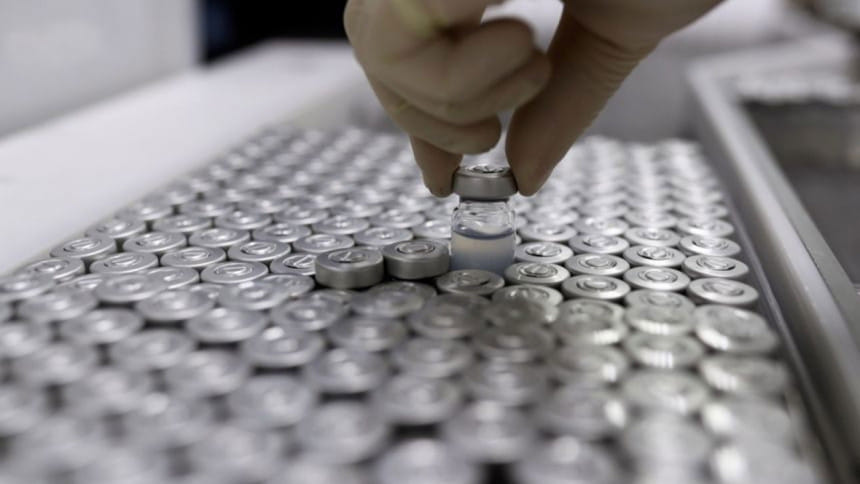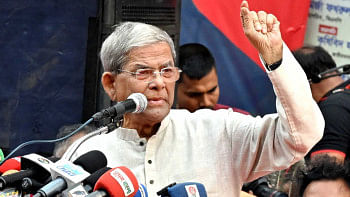World faces a looming crisis compounded by vaccine inequities

In a world that has always favoured the rich over the poor—both within a country and across nations—the Covid-19 pandemic will worsen this maldistribution further unless actions are taken soon to rectify it. The richer countries have already garnered more than their fair share of vaccines, and are somewhat busy taking care of their own people. The resource-poor countries, without vaccines and now facing shortages brought about by the AstraZeneca and Johnson & Johnson (J&J) missteps, can only hope that the international organisations will take action to remedy the crisis and offer a helping hand by providing the financial and logistics support needed to balance the lopsided current distribution of vaccines and healthcare facilities with loans/grants that can prevent the disaster looming on the horizon.
I am not resorting to fearmongering here. The Washington Post earlier this month provided a summary of a recent intelligence report from the US National Intelligence Council. The report entitled "Global Trends" forecasts that the world faces a bleak future unsettled by the coronavirus pandemic, compounded by climate change and mass migration fuelled by climate change. The council describes the pandemic as "the most significant, singular global disruption since World War II" and calls upon global leaders to take charge of the potential harm that will inevitably result unless governments and institutions respond with an open mind and take measures to change their own biased attitude and "long-held assumptions".
What triggered this colossal vaccine inequity? First of all, a handful of rich nations like the US, Canada, UK, countries in the EU, China and the UAE, among a few others, have monopolised almost 65-70 percent of the world's vaccine doses, even though they only have 16 percent of the global population. It is estimated that these rich nations are vaccinating one person every second, while the majority of the poorest nations are yet to administer a single dose. These statistics are just further proof of the emergence of "vaccine nationalism" which I warned about last August in my op-ed, "Cheap and fast vaccination is an urgent need for poorer countries" (The Daily Star, August 20, 2020).
The stark reality speaks for itself. The United States has 1.5 billion doses of vaccine while the European Union has locked up nearly two billion doses—enough to vaccinate all of their citizens and then some. Many poor countries could be left waiting until 2024 to fully vaccinate their populations.
The IMF earlier this month circulated its Economic Outlook with a mix of optimistic and a not-so-rosy scenario for the coming years. It cautioned that its projections hinged on the deployment of vaccines and a moderate spread of the variants of the virus, which could pose both a public health and economic threat. It rightly pointed out that the pandemic has strained the health systems and severely hit the economies of developing countries with limited policy space to respond. Millions of people have fallen into extreme poverty, and food insecurity has risen starkly, especially in the poorest countries and for those living in fragile and conflict-affected situations. "Our urgent priorities are to contain the pandemic, for which scaling up vaccinations will be crucial, and rebuild our economies to avoid a lost decade of development and a major decline in people's well-being", an IMF communique advised.
We are now increasingly becoming aware of an interesting but frightening possibility, a vicious cycle of Covid-triggered instability. The uneven rollout of vaccines might leave the developing countries behind. One cannot deny the link between vaccine inequality, income inequality, and inequality in economic recovery. Poorer countries have suffered more and the inequality in vaccination will lead to further inequalities in income.
Low-income countries are facing bigger losses in economic output than advanced economies, reversing gains in poverty reduction. And within each country, whether we are talking about advanced or developing economies, low-skilled workers have been hit the hardest and those who lost jobs could find it difficult to replace them. To take an example, studies by SANEM has shown that, in Bangladesh, the poorer segments of the population had their income and food intake go down, and the recent lockdown will only exacerbate their stress and economic vulnerability.
IMF chief Kristalina Georgieva echoed this grim assessment and cautioned that half of the developing nations will see their per-capita income levels relative to advanced economies fall as a result of the pandemic, marking a reversal from recent decades. "This year we face the risk of great divergence," Georgieva said. "The path to recoveries is uneven, and that unevenness can translate with substantial problems for the world in the years to come." Forecasting models cited by the IMF chief show that low vaccination and weak recovery in developing countries could result in a major setback, costing a sizeable chunk of the expected USD 8 trillion output growth between 2021-25.
In the absence of a major advance in the vaccination efforts spearheaded by COVAX, poor countries will continue to be ravaged by the pandemic, forcing them to expend meagre resources that are already stretched by growing debts to lenders in the United States, Europe and China. If the poorest countries do not gain vaccines, the global economy will surrender USD 153 billion a year in output, according to a recent study from the RAND Corporation. "It's clear that developing countries, and especially poorer developing countries, are going to be excluded for some time," said Richard Kozul-Wright, director of the division on globalisation and development strategies at the UNCTAD in Geneva. "Despite the understanding that vaccines need to be seen as a global good, the provision remains largely under the control of large pharmaceutical companies in the advanced economies."
By 2025, the long-term economic damage from the pandemic will be twice as severe in so-called emerging markets compared with wealthy countries, according to Oxford Economics. High debt burdens limit the ability of many poor countries to pay for vaccines. Private creditors have declined to take part in a debt suspension initiative championed by the Group of 20.
The recent setbacks in vaccination efforts due to blood clots associated with the AstraZeneca and J&J vaccines need to be carefully followed. Drugmakers GlaxoSmithKline and Sanofi have already announced that their potential Covid-19 vaccines won't be ready until late this year because they need to improve the shot's effectiveness for older people. Availability of cheap and plentiful vaccines is crucial in wiping out the pandemic. The AstraZeneca vaccine is regarded as the pillar of the UN-backed COVAX programme, since it is cheaper and easier to store than many others, an important consideration in the global effort to get vaccines to some of the world's poorest countries.
Last but not the least, African countries plan to vaccinate 60 percent of their population by the end of 2022 and the programme is dependent on the use of the AstraZeneca vaccine and its widespread acceptability. It is feared that safety concerns may delay inoculations, erode confidence in the shot, and lead to uneven implementation.
"You need to vaccinate health care workers globally so you can reopen global markets," said Clare Wenham, a health policy expert at the London School of Economics. "If every country in the world can say, 'We know all our vulnerable people are vaccinated,' then we can return to the global capitalist trading system much quicker."
Dr Abdullah Shibli is an economist and has been working in higher education and information technology for 35 years in the USA and Bangladesh. He is also Senior Research Fellow, International Sustainable Development Institute (ISDI), a think-tank in Boston, USA.

 For all latest news, follow The Daily Star's Google News channel.
For all latest news, follow The Daily Star's Google News channel. 



Comments